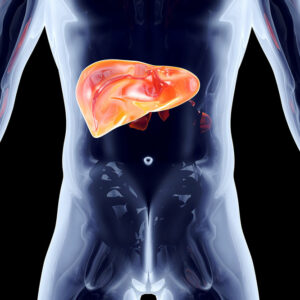Multiple sclerosis – Foods to avoid for managing the condition

Multiple sclerosis is an autoimmune condition that affects the body’s CNS or central nervous system. It destroys the myelin sheath (covering of the nerve cells), which impacts the communication pathway between the brain and the body. Some symptoms include loss of bladder control, fatigue, vision problems, pain, and problems related to bowel movements. The condition does not yet have a cure. Its management involves a combination of treatment, food habits, and a healthy lifestyle.
Saturated fats
Foods rich in saturated fats have often been labeled bad for patients with various health conditions, including multiple sclerosis. They increase the levels of low-density lipoprotein (bad cholesterol) in the body, which raises the risk of heart attack, stroke, and atherosclerosis. A few common sources of saturated fats in daily meals include processed meat, red meat, butter, and cheese. It is highly advisable for patients with this condition to either avoid or cut down on these.
Sugar
Many are ignorant of the ill effects of excess sugar intake. Some of these harmful effects include increased inflammation in the body and lethargy. These, combined with decreased physical activity, can cause frequent flare-ups in patients. Therefore, to avoid worsening symptoms, one must avoid foods rich in refined sugars like soft drinks, candy, and chocolate bars.
Trans fats
Trans fats, also called bad quality fat, can harm the body. They are one of the compounds responsible for the deteriorating condition of a person’s immune response. A few examples of foods with trans fats are French fries, frozen pizza, and baked goods. Besides trans fat, these items have chemical coloring agents and additives that lead to compromised immunity. Like sugars, trans fats lead to increased inflammation in the body and increase the frequency of flare-ups.
Refined carbs
Refined carbohydrates are found in many foods in this day and age. Bread, pasta, cereals, and most fast foods contain them. Refined carbs are, however, to be avoided by people with multiple sclerosis. The switch from refined to whole food can be difficult, but it is worth the hassle. Reducing refined carbohydrates can help stabilize the irregular spikes and dips in blood sugar levels that cause the deterioration of the myelin sheath.
Sodium
High salt levels in food contribute to worsening symptoms in patients with this disorder. Excessive sodium or salt intake has been associated with increased flare-ups. It can also cause discomfort because of bloating and excessive water retention in the body. Further, it can increase blood pressure levels, which is also a concern in patients.
Gluten
Studies suggest that people with multiple sclerosis may be susceptible to gluten sensitivity or intolerance. The sensitivity, combined with the increased inflammation levels caused by gluten intake, can worsen this disorder. Therefore, patients must avoid foods containing gluten, even in the tiniest amount. A few examples are wheat-based foods like bread and crackers.
Processed food
Ready-to-eat meals or foods that are packaged and highly processed must be avoided. They have better taste and color and an increased shelf life because of the preservation processes they are subjected to. However, these processes involve the use of harmful chemicals that can damage the digestive and intestinal tract. A few items to avoid are processed meats, processed juices, cereals, pasta, and bread.
Multiple sclerosis is a progressive disease that either speeds up or slows down depending on the food, lifestyle, and treatment followed by the patient. The condition can obstruct the message flow from the optic nerve, spinal cord, and brain. Its progressive nature also means patients can experience periods of stabilization of the condition spaced with worsening symptoms. Doctors can prescribe special treatment options to help with relapsing multiple sclerosis in such cases. These treatments might help bring down the rate of relapse. Individuals must consult a doctor if unsure about the foods, treatments, and lifestyle changes to be followed to manage the ailment efficiently.



